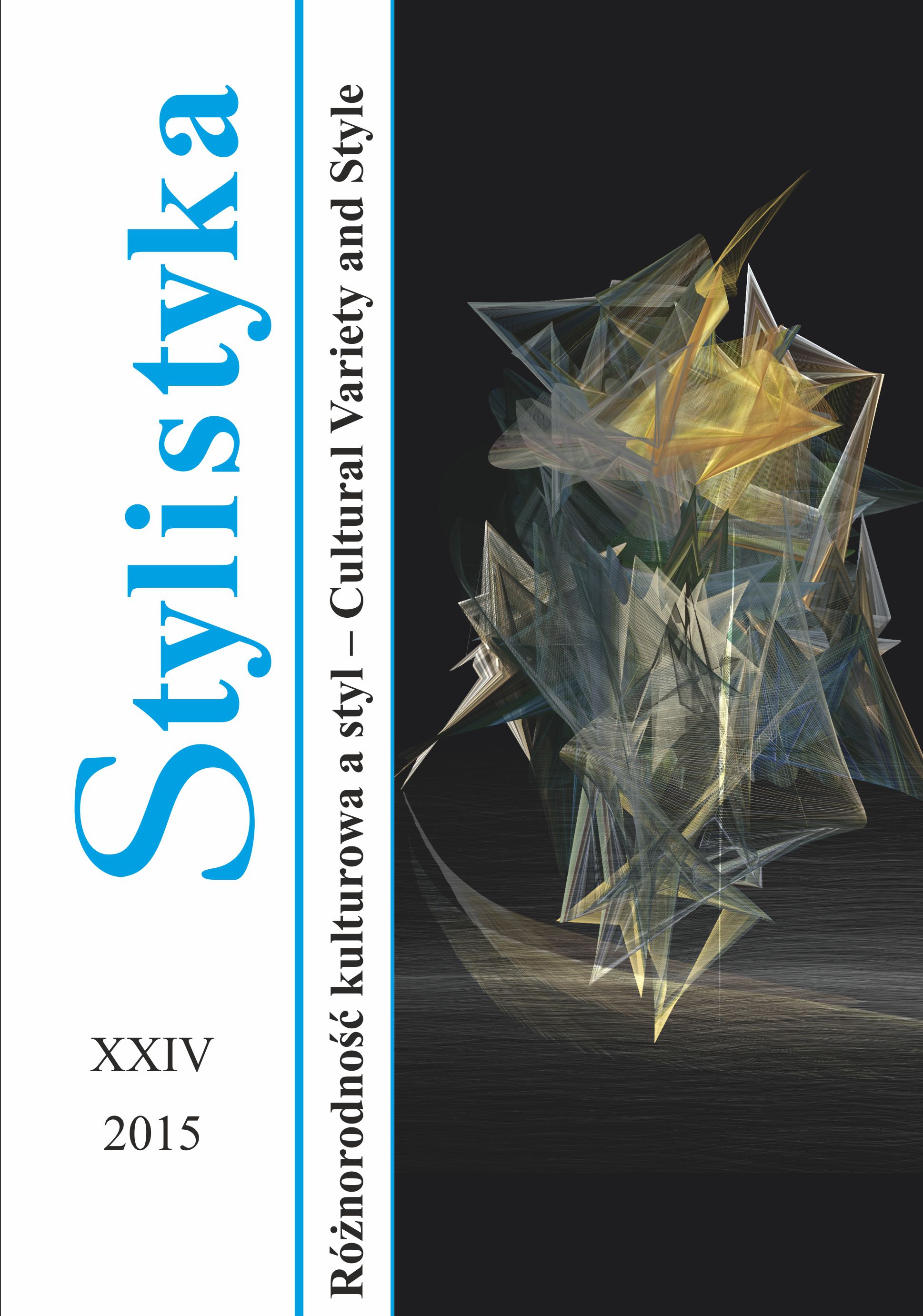ЛЕКСИКО-СЕМАНТИЧЕСКИЙ АНАЛИЗ СТИХОТВОРЕНИЯ Н. С. ГУМИ-ЛЕВА „САДЫ ДУШИ”
Lexico-semantic analysis of Gumilev’s “Gardens of the Soul” poem
Author(s): Larisa KasperovaSubject(s): Language studies, Language and Literature Studies
Published by: Uniwersytet Opolski
Keywords: idiostyle: Gumilev; poetic text; poetic metaphor; lexico-semantic analysis; socio-philological experiments
Summary/Abstract: This article presents a lexico-semantic analysis of Nikolay Gumilev’s “Garden of the Soul” poem (1907). In the early 20th century, there appeared a special type of depiction in art – a depiction of the author’s inner state. Analyzing the idiostyles (individual styles) of the poets from the Silver Age, we have defined it as a psychological self-portrait, the type of character depiction wherein the poet uses the artistic format to characterize his or her mental state when creating the work of art. One of Nikolay Gumilev’s early poems, “Gardens of the Soul” (1907), fits into the category of the psychological self-portrait. In his early poems, the poet had already demonstrated the basic features of the future neo-romantic trend in Russian poetry, known as acmeism (from the Greek Üêìç (acme), the height of the blossoming season), founded by Nikolay Gumilev himself. By opposing themselves to the symbolists, the acmeists turned to the description of the material world. First and foremost, they tended to replace the referent with characterization in metaphorical constructions, and describe abstract notions through analogies with the material world. In his poem “Gardens of the Soul” the author describes his inner world through the metaphor of the garden. On route from referent denotations of the words garden and soul to the metaphorical meaning of the phrase “gardens of the soul”, the readers find themselves neutralizing the concrete semantic components, while other semantic components are actualized. The study uses lexicosemantic analysis and socio-philological experiments. The article summarizes the results of a survey, in which the respondents of various age and social groups interpret the text of the poem. The metaphorical transfer between the notions of the soul and the garden is carried out through not one, but several ways: epidigmatic (3%), lexicosemantic (39%), attributive (25%) and lexico-derivational (33%).
Journal: Stylistyka
- Issue Year: 2015
- Issue No: XXIV
- Page Range: 228-235
- Page Count: 8
- Language: Russian

